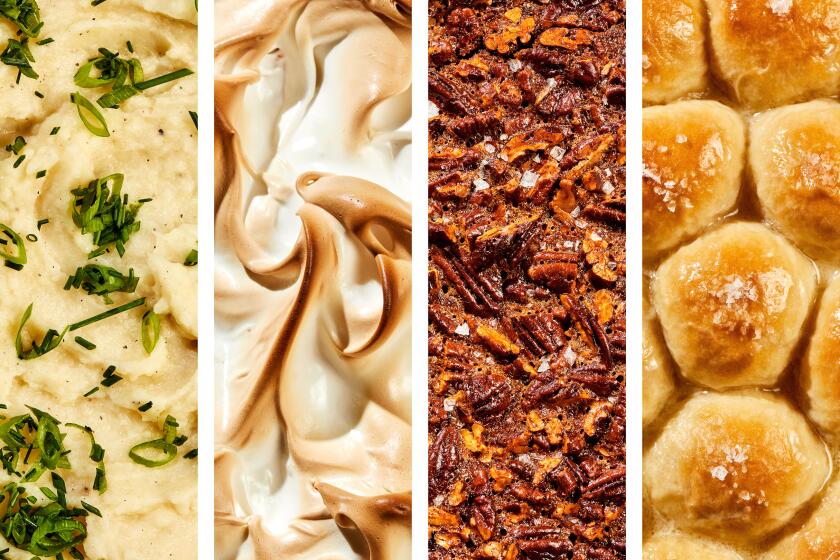Radiation, Food Make a Bad Mix, Critics Contend
FRESNO â Zapping fresh foods with radiation may increase their shelf life and make them safer to eat. But the notion of eating irradiated fruits, vegetables and meats leaves a bad taste in some mouths.
Despite claims by some scientists, the federal government and others that irradiation is a safe way to rid foods of bacteria, microorganisms or insects, anti-nuclear activists and other scientists insist that it can harm people.
The process involves running produce on a conveyor belt around a radiation source for a few seconds or minutes. Eighteen-inch-long rods containing either cobalt 60 or cesium 137 treat the foods without raising their temperature. When not in use, the rods are immersed in water as a safety precaution.
X-rays and gamma rays break chemical bonds and âeither disrupt the ongoing process of decay or any contaminant on the food,â said Christine Bruhn, consumer food marketing specialist with UC Cooperative Extension at Davis.
Safe to Handle and Eat
Supporters say food does not become radioactive at the doses used and is safe to handle and eat immediately after irradiation. They say it can extend shelf life of some produce and meats and rid pork of dangerous parasites.
âScientists say it is safer than products contaminated with microorganisms or mold or some chemically approved products,â Bruhn said.
Opponents contend that studies showing adverse effects have been ignored or suppressed. One study found chromosome damage in humans four weeks after they ate freshly irradiated wheat, said Denis Mosgofian, director of the San Francisco-based Coalition to Stop Food Irradiation.
âIrradiation of food actually changes the food, rearranges its chemistry, creates new chemicals, many of which are toxic,â Mosgofian said. âIrradiated food has been shown repeatedly to produce adverse health effects to both animals and humans who consumed it.â
Congressman Wants New Study
Rep. Douglas H. Bosco (D-Occidental) introduced legislation in March to rescind a 1986 ruling by the Food and Drug Administration allowing the sale of irradiated foods. He also called for a National Academy of Sciences study of the process.
Bosco said he wanted âany new technology proven safe before it is allowed to permeate our food chain.â
Bruhn acknowledged that scientists have found a meat product that produced a âunique radiolytic productâ when irradiated. âThe important thing is, does that make it toxic? The indication is that it does not,â she said.
Concern also has been raised that irradiation might allow mutations of bacteria or viruses, but a World Health Organization study turned up none. âIt could happen in the future,â Bruhn said. âItâs unlikely.â
Irradiated food is rare at U.S. supermarkets, partly because fumigation is cheaper. But the process is used to sterilize medical equipment at 40 plants in the United States, and some spices are irradiated to kill microbes.
The Washington Apple Commission has received thousands of letters in what officials say seems to be an organized campaign expressing concern that apples will be treated at an irradiation research center that the U.S. Department of Energy plans to build at Pasco, Wash.
âAn irradiated apple a day keeps the consumer away,â one letter said.
Commission spokesman Charles St. John said Washington apples will not be irradiated, even though the process would kill codling moth larvae that keep large amounts of fruit out of the Japanese market. âThe Japanese have told us they are not going to accept irradiation, so it is a moot point,â he said.
Bruhn said most California consumers are undecided. âSome want to avoid them; others want to buy them. In any case, they all want to be able to make an informed choice.â
More to Read
Eat your way across L.A.
Get our weekly Tasting Notes newsletter for reviews, news and more.
You may occasionally receive promotional content from the Los Angeles Times.









